
The Indian surgeon Sushruta (circa. 1000-800 BC) is considered the 'father of plastic surgery'. The earliest form of such surgery was the use of skin from other parts of the body (arm, cheek, or forehead) to reconstruct amputated noses. The word 'plastic' in the term comes from the Greek 'plastike', or the art of modelling or sculpting. While originally used for restoration, it has now expanded to rejuvenation and enhancement. Between eight to 10 lakh cosmetic surgeries happen in India every year, and the country is one of the most popular hubs for such procedures. Surgeries which are considered medically necessary (like those for correcting nasal deformities which hamper breathing) are covered under insurance, while the rest might or might not be.
Dr Amit Gupta, MBBS, MS and DNB, is the founder and chief surgeon at Divine Aesthetics in Delhi. He has treated over 25,000 patients from the US, the UK, the UAE, Canada, Australia and Russia. When not wielding the scalpel, he likes to play the piano.
In layman's terms: Cosmetic surgery is the science of enhancing a person's natural body aesthetics. It helps individuals attain bodily features that complement their body or face type better.
Difference from plastic surgery: Plastic surgery encompasses a broader scope, including procedures like cancer reconstruction, birth defect correction (like cleft lip), and accident injury reconstruction. It can be divided into two main categories: reconstructive and cosmetic. Cosmetic surgery does not have further subdivisions. It is optional in most cases since it enhances a person's appearance whereas reconstructive surgery is a medical necessity.
An ideal patient: One who understands what is achievable, recognises the importance of the changes, is emotionally stable and socially settled, and has realistic expectations from the procedure.
This story is from the May 05, 2024 edition of THE WEEK India.
Start your 7-day Magzter GOLD free trial to access thousands of curated premium stories, and 9,000+ magazines and newspapers.
Already a subscriber ? Sign In
This story is from the May 05, 2024 edition of THE WEEK India.
Start your 7-day Magzter GOLD free trial to access thousands of curated premium stories, and 9,000+ magazines and newspapers.
Already a subscriber? Sign In

Doctor's doctors
Internists deal with prevention, diagnosis and treatment of all kinds of diseases, while also coordinating with doctors across specialties

WORK THIS OUT!
What is the true cost of a 90-hour workweek? Reduced productivity, mental health issues and severe health risks, say doctors
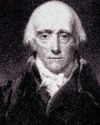
The experience of oppression
The British enacted several laws that might appear liberal, only to then veto the invocation of progressive measures. Nevertheless, these milestones guided the founding fathers in conceiving and creating the Constitution of India
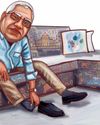
One, two, buckle my shoe!
“Darling,” I said to my life companion of more years than I care to remember, “Do you think there is any correlation between pain in the feet and attending prayer meetings?”“You really are a stupid old man!” said the light of my life. “Can’t you think of anything more bizarre so late at night?”

A helping hand
Over the past year, Imaginarium has placed 3D-printed parts in space, in human bodies, in oil fields in the Middle East, and as drones on the Indian border
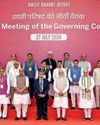
Fading federalism
One of the most visible indicators of the erosion of state autonomy is the diminishing financial independence of states

FOUNDING MOTHERS OF THE CONSTITUTION
THEIR CONTRIBUTION IN THE MAKING OF THE REPUBLIC REMAINS EXEMPLARY AND INSPIRING

Value every breath
VO2 max is the best way to measure fitness and predict life expectancy
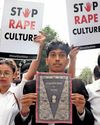
Statutes of unity
The Constitution reminds us that national oneness comes through addressing inequalities, not enforcing uniformity
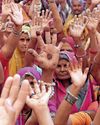
Incomplete equality
Equal marriage rights is one of the last bastions of patriarchy and to dismantle it, the recognition of marital rape as an offence is non-negotiable